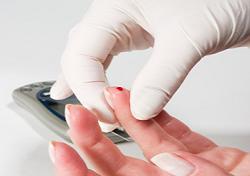Diabetes Symptoms in Men
Though many diseases seem to exhibit different symptoms depending on which sex has the disease, many times diabetes symptoms in men differ little from diabetes symptoms in women. Whether type 1 of type 2diabetes, men suffer from most of the same diease symptoms as women, as far as the diabetes itself is concerned. The secondary diseases that often accompany diabetes, such as heart disease, high blood pressure, and kidney problems affect diabetic males in much the same way as they affect males without diabetes. One of the chief reasons that a person should be familiar…


